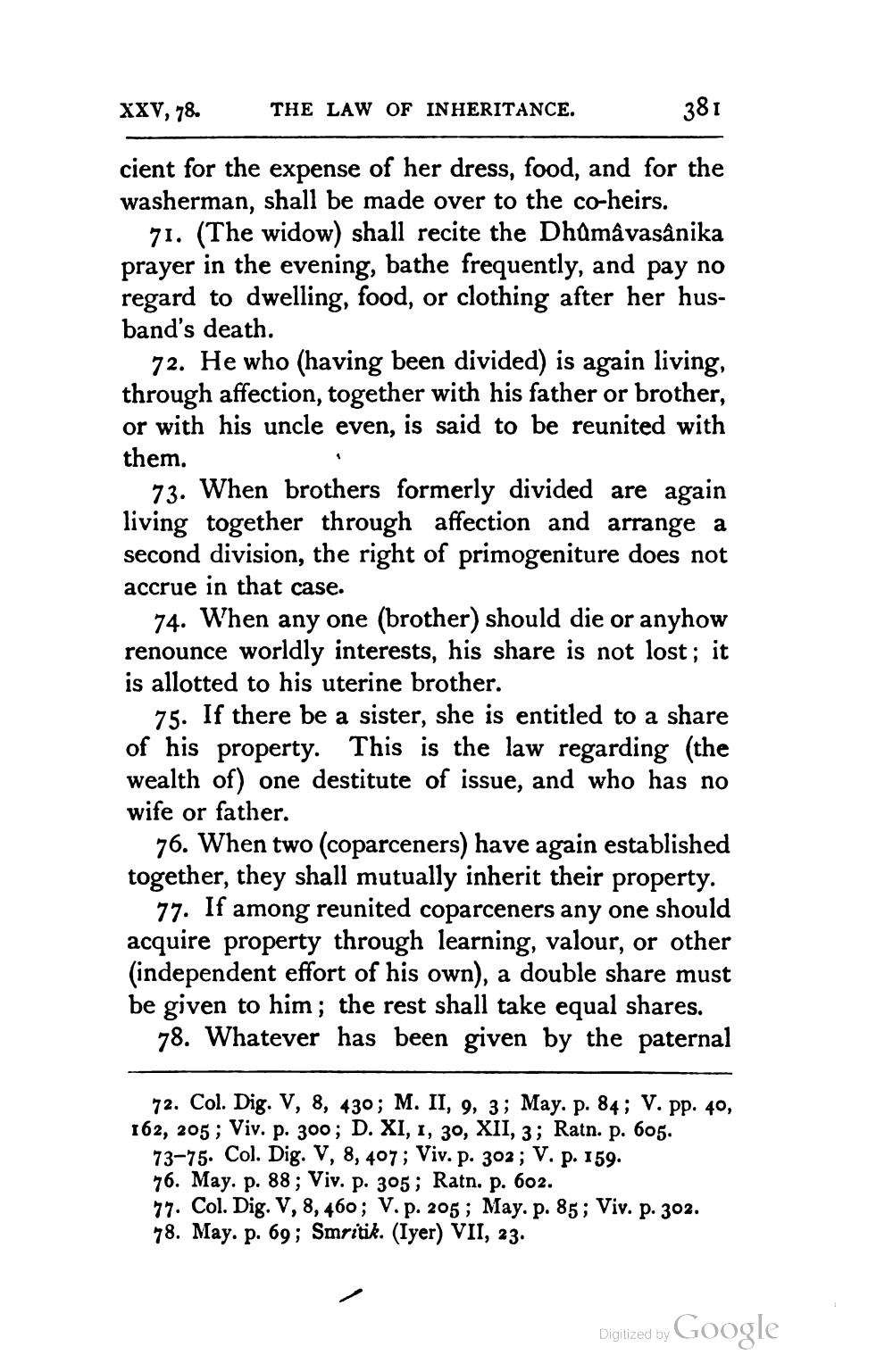________________
XXV, 78.
THE LAW OF INHERITANCE.
- 381
cient for the expense of her dress, food, and for the washerman, shall be made over to the co-heirs.
71. (The widow) shall recite the Dhůmâvasânika prayer in the evening, bathe frequently, and pay no regard to dwelling, food, or clothing after her husband's death.
72. He who (having been divided) is again living, through affection, together with his father or brother, or with his uncle even, is said to be reunited with them.
73. When brothers formerly divided are again living together through affection and arrange a second division, the right of primogeniture does not accrue in that case.
74. When any one (brother) should die or anyhow renounce worldly interests, his share is not lost; it is allotted to his uterine brother.
75. If there be a sister, she is entitled to a share of his property. This is the law regarding the wealth of) one destitute of issue, and who has no wife or father.
76. When two (coparceners) have again established together, they shall mutually inherit their property.
77. If among reunited coparceners any one should acquire property through learning, valour, or other (independent effort of his own), a double share must be given to him; the rest shall take equal shares.
78. Whatever has been given by the paternal
72. Col. Dig. V, 8, 430; M. II, 9, 3; May. p. 84; V. pp. 40, 162, 205; Viv. p. 300; D. XI, 1, 30, XII, 3; Ratn. p. 605.
73–75. Col. Dig. V, 8, 407; Viv. p. 302; V. p. 159. 76. May. p. 88 ; Viv. p. 305; Ratn. p. 602. 77. Col. Dig. V, 8, 460; V. p. 205; May. p. 85; Viv. p. 302. 78. May. p. 69; Smritik. (Iyer) VII, 23.
Digitized by Google
Digitized by




